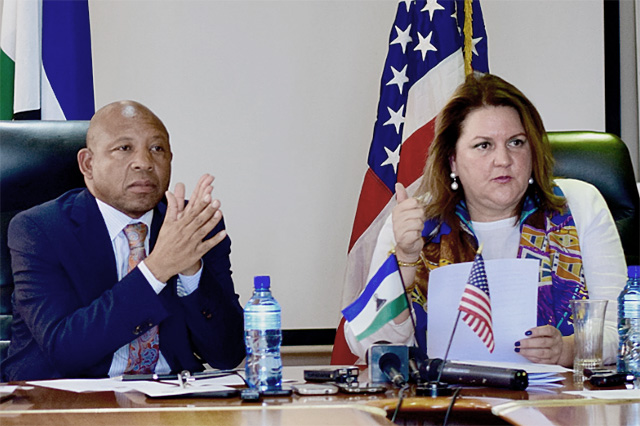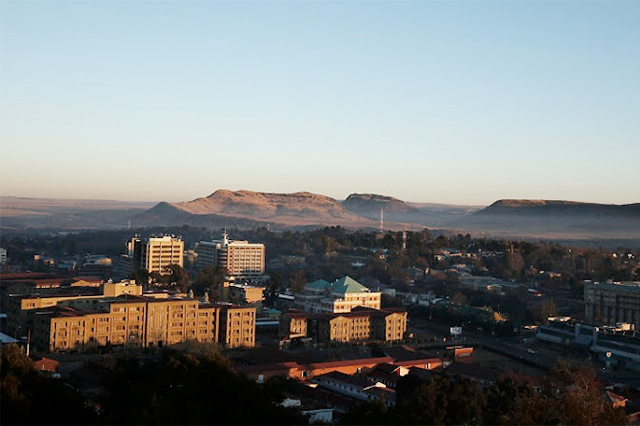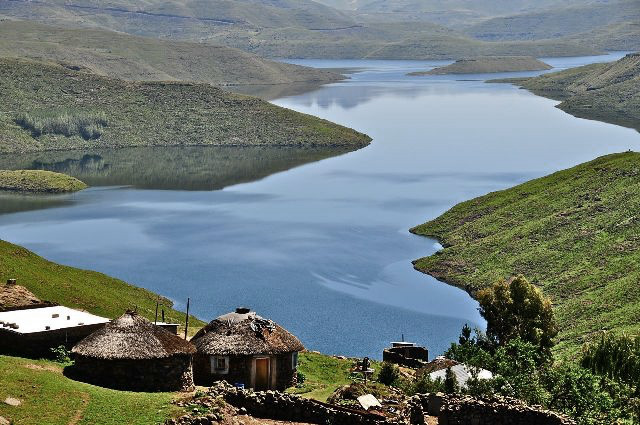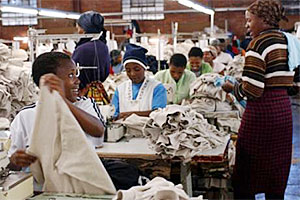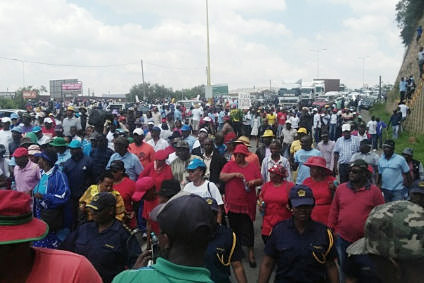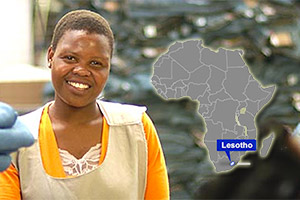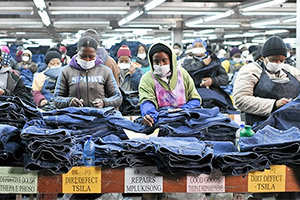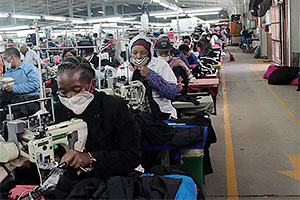Lesotho’s economy catches flu - from South Africa’s sneeze
For decades the mountain kingdom of Lesotho has relied heavily on South Africa to advance - until now. South Africa's economic difficulties are placing Lesotho’s economy at a crossroads, as the government struggles to push big rocks up the mountain to balance the national budget.
South Africa employs thousands of Basothos (nationals of Lesotho) as migrant labour, buys water from a project that in turn generates enough electricity to meet Lesotho’s needs and generously shares revenue from a customs union that contributes significantly to the tiny kingdom’s budget. Moreover, South African companies are active in other sectors, including retail trade, insurance and banking.
Now the economic outlook is shifting, despite modest gains over the years Lesotho remains one of the world’s poorest countries. The 2011/12 budget was “the most difficult the government had to put together,” reckons Finance Minister Timothy Thahane. His worries include a slowdown in economic growth, rising unemployment and diminishing revenues from migrant workers who are losing jobs in South Africa. Lesotho also faces declining agricultural production, falling life expectancy and high HIV infection rates.
In addition, Lesotho is wrestling with a 30 per cent decline in domestic revenues and a 15 per cent budget deficit in the 2011/12 financial year. The government expects to fund the gap with loans from international financial institutions and foreign aid.
A steep decline in last year’s takings from the Southern African Customs Union (SACU) punched the biggest hole in the budget. SACU, the oldest customs union in the world (it recently celebrated its hundredth anniversary), maintains free trade among members — South Africa, Botswana, Lesotho, Swaziland and Namibia — and charges non-members a common tariff. Revenues are shared from a common pool run by South Africa under an agreed-upon formula. Since 1969, SACU receipts have been contributing more than half of Lesotho’s budget revenues.
“As a country, we were overly aware that about 60 per cent of the government’s budget is funded by SACU,” Central Bank Governor Retselisitsoe Matlanyane told a local magazine, Visions, in early 2011. Thanks to the recent global financial meltdown, trade among SACU members has fallen considerably, cutting by half Lesotho’s customs receipts.
Worse still, dwindling remittances from migrant workers in South Africa have dealt another blow. The World Bank’s Migration and Remittances Factbook 2011 shows that out of Lesotho’s 2.1 million people, about 457,500 were living outside the country in 2010. As the largest source of foreign exchange, remittances contribute an estimated US$525 million or 30 per cent of Lesotho’s GDP in 2010, says the report.
Despite the upsurge in global mineral prices, there has been a mild recession in South Africa over the past few years. That in turn has had an impact on Lesotho by forcing employers, especially mining companies, to retrench thousands, including Basotho migrants — thereby cutting the remittances they send back home.
The textiles industry too has taken a beating. Low demand for garments in the US has shrunk earnings and contributed to the red ink in the budget. Under a US law, the African Growth and Opportunity Act (AGOA), Lesotho has emerged as one of sub-Saharan Africa’s largest garments exporters to the US. AGOA allows qualifying African countries to sell textiles duty-free to the US. Yet a strong South African rand — to which Lesotho’s national currency, the loti, is pegged — has hurt the competitiveness of Lesotho’s second largest employer.
The picture from agriculture is even less reassuring. Three in four Basothos eke out a living from subsistence farming. But the contribution of grain harvests to the GDP has dropped from 4.8 per cent in 2000 to 1.8 per cent in 2010, says Mr. Thahane. The UN has warned that crop production “is declining and could cease altogether over large tracts of the country if steps are not taken to reverse soil erosion, degradation, and the decline in soil fertility.”
Despite the economic hardships, Lesotho has until now done better than its neighbours – Swaziland and Zimbabwe. There are a few silver linings that could change fortunes. To its credit, the government now realizes the hazards of relying too much on traditional sources of revenue. In his budget speech, the finance minister unveiled new policies to revive agriculture, diversify export products and markets and attract investors by relaxing foreign investment laws. Still, such policies can bring relief only if the economies of the country’s key trading partners — the US, European Union and South Africa — recover.
Water is Lesotho’s “white gold,” as Basothos fondly call it. Income from the sale of water from the Lesotho Highlands Water Project is expected to increase with the construction of Metolong Dam and its spin-offs. Under the water project, created in partnership with South Africa, Lesotho exports water to its neighbour’s Gauteng province through a series of dams and tunnels blasted through the mountains. Gauteng, the hub of South Africa’s economy, has little water of its own and therefore needs Lesotho to quench its thirst. As a double benefit, the multi-billion-dollar project also generates enough hydroelectric power to meet about 90 per cent of Lesotho’s energy needs.
Lesotho could also count on a decent windfall from mining exports as global mineral prices go up. Income from diamonds, while still negligible, is growing. The government plans to generate additional funds by cutting and polishing the diamonds at home. Lesotho has shown renewed interest in attracting investors. The World Bank’s 2011 Doing Business report, which ranks countries’ business-friendly policies, grades Lesotho at a dismal 138 out of 183 countries. If it relaxes business restrictions, the government could easily lure investors into the mining, textile and retail industries.
Nevertheless, huge challenges lie ahead, including the likelihood of another global recession, which could upset many of Lesotho’s well-crafted economic plans. For now, the tiny mountain kingdom appears to have grasped the perils of unbridled reliance on South Africa’s magnanimity.
 Latest AGOA Trade Data currently available on AGOA.info
Latest AGOA Trade Data currently available on AGOA.info
Click here to view a sector profile of Lesotho's bilateral trade with the United States, disaggregated by total exports and imports, AGOA exports and GSP exports.
Other regularly updated trade statistics on AGOA.info include: (click each link to view)




